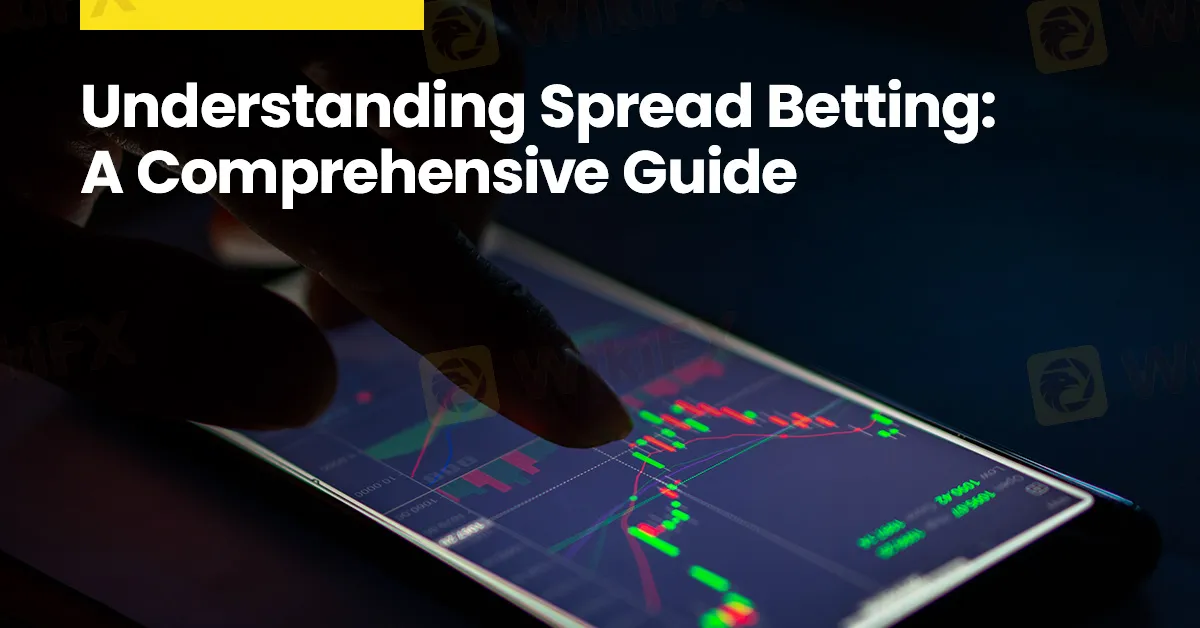简体中文
繁體中文
English
Pусский
日本語
ภาษาไทย
Tiếng Việt
Bahasa Indonesia
Español
हिन्दी
Filippiiniläinen
Français
Deutsch
Português
Türkçe
한국어
العربية
Understanding Spread Betting: A Comprehensive Guide
Abstract:Offering flexibility and potential for profit in both rising and falling markets, spread betting has emerged as a favoured choice among traders seeking leveraged opportunities. So, what exactly is spread betting, and how does it work?

In the dynamic world of financial trading, various strategies and instruments cater to different risk appetites and investment goals. One such method gaining popularity, particularly in the realm of forex and cryptocurrency trading, is spread betting. Offering flexibility and potential for profit in both rising and falling markets, spread betting has emerged as a favoured choice among traders seeking leveraged opportunities. So, what exactly is spread betting, and how does it work?
At its core, spread betting is a form of derivative trading where participants speculate on the price movements of various financial instruments without actually owning the underlying asset. Instead of purchasing the asset outright, traders place bets on whether the price will rise or fall within a specified time frame. The profit or loss is determined by the accuracy of the prediction and the size of the stake.
One of the key features of spread betting is the spread itself. This refers to the difference between the buying (ask) and selling (bid) price of an asset. Unlike traditional trading methods where commissions or fees are charged, spread betting incorporates the spread as the primary cost of trading. Traders aim to profit by correctly predicting price movements that exceed this spread.
For instance, if a trader believes that the price of a currency pair like EUR/USD will increase, they would place a “long” spread bet. Conversely, if they anticipate a decrease in price, they would place a “short” spread bet. The potential profit or loss is determined by how much the price moves in the chosen direction.

Spread betting also offers leverage, allowing traders to control a larger position size with a relatively small amount of capital. While leverage can amplify profits, it also magnifies losses, making risk management crucial. Traders must be mindful of the potential for significant losses, especially when using high leverage.
Furthermore, spread betting provides flexibility in terms of trading various markets, including forex, indices, commodities, and cryptocurrencies. This versatility enables traders to diversify their portfolios and capitalize on opportunities across different asset classes.
Regulation and tax implications are essential considerations for spread bettors. Regulations vary by jurisdiction, with some regions imposing restrictions or requiring licensing for providers. Additionally, tax treatment differs between countries, with spread betting often considered tax-free in certain jurisdictions, subject to specific criteria.
Despite its appeal, spread betting carries inherent risks and complexities that may not be suitable for all traders. Market volatility, leverage, and the potential for significant losses underscore the importance of thorough research, disciplined risk management, and a sound trading strategy.
In conclusion, spread betting offers a flexible and leveraged approach to trading financial markets, allowing participants to profit from both upward and downward price movements without owning the underlying asset. By understanding the mechanics, risks, and regulatory considerations associated with spread betting, traders can make informed decisions and navigate the markets with confidence. As with any form of trading, diligence, and prudent risk management are essential for success in spread betting.

Disclaimer:
The views in this article only represent the author's personal views, and do not constitute investment advice on this platform. This platform does not guarantee the accuracy, completeness and timeliness of the information in the article, and will not be liable for any loss caused by the use of or reliance on the information in the article.
Read more

Top Forex Trading Strategies for the London Session
The London forex session is one of the most active and liquid periods in the forex market. Spanning from 8:00 AM to 4:00 PM GMT, this session overlaps with the Asian and New York sessions, providing traders opportunities to check on volatility and high trading volume. In this article, we’ll explore the top forex trading strategies for the London session.

Top Forex Strategies Every Trader Should Know
Master top forex trading strategies to boost your currency trades. From beginner tips to advanced methods, learn how to trade smart and achieve consistent profits.

5 Risks associated with Grand Capital
You can avoid fraud, crypto scams, and similar traps simply by staying informed. If you regularly follow forex news, there’s a lower chance that you’ll fall victim to such scams. Being aware is the only way to stay safe. That’s why you also need to know about the Grand Capital broker and why it should avoided.

Exposed: Ibell Markets - A Scam Broker That Does Not Allow Withdrawals
Ibell Markets adds to the infamous list of scam brokers who think about acquiring customers and their investments. But what about the withdrawal? Do they allow? Read this to find out.
WikiFX Broker
Latest News
FCA clarifies expectations on bullying, harassment and violence to deepen trust in financial service
Asia-Pacific markets mixed after Trump shifts goalposts on tariffs again
XS.com Expands Global Reach with Landmark Kuwait Launch
European markets set to open mixed amid fresh U.S. tariff threats
Top Wall Street analysts are pounding the table on these 3 stocks
Stock futures fall after Trump team says tariffs will go into effect on Aug. 1: Live updates
10 Unlicensed Brokers Exposed – Check Now to Stay Safe!
S&P 500 futures fall slightly as Trump threatens new tariffs, Tesla shares drop: Live updates
Stocks are lower despite Bessent saying several trade announcements are ahead: Live updates
Exposed: Ibell Markets - A Scam Broker That Does Not Allow Withdrawals
Currency Calculator


